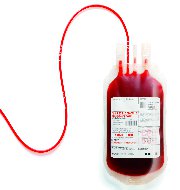Health Ministry modifies National Blood Policy to allow Blood banks to borrow units from one another
Union Ministry of Health & Family Welfare has made a major modification in the National Blood Policy (NBP), 2002 to allow blood banks to borrow units from one another in case of a shortage.
This decision was taken as part of reforms for handling of blood units in the country based on the recommendation of the National Blood Transfusion Council (NBTC).
The ministry also has made modification in the policy to fix an exchange value for surplus plasma available at some blood banks in the country. This move will help to curb the trading or selling of surplus plasma by the blood banks with proper regulatory framework.
Implications: Increase the availability of essential life saving medicines like immunoglobulins, human albumin and clotting factors which are all derived from plasma. Reduce the country’s dependence on import of these products.
Background
- Country is facing shortage of blood units and it was a recurring problem since the Supreme Court banned paid donation in January 1998.
- Following SC’s order, Union Government had framed National Blood Policy, 2002 to phase out replacement donation in 5 years and promote voluntary blood donations.
- To further promote voluntary blood donations, National and State Blood Transfusion Councils were established in the 1990s.
It should be noted that, human blood is treated as a drug as per provisions of Drugs and Cosmetics Act, 1940. Presently, India has around 2,760 licensed blood banks as per the Central Drug Standard Control Organisation (CDSCO).
Month: Current Affairs - October, 2015


